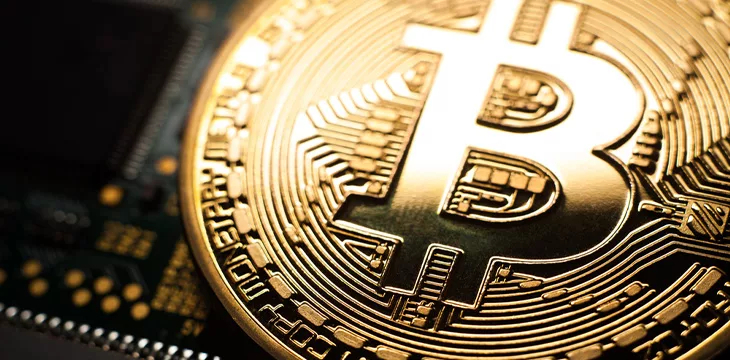|
Getting your Trinity Audio player ready...
|
Last week, I read an article in the London Evening Standard detailing how Bank of England (BOE) Boss Andrew Bailey said Bitcoin is inefficient.
Answering questions before MPs, the central bank boss said Bitcoin was “not taking off” and that “using Bitcoin as a payment service is pretty inefficient.”
Mr. Bailey is incorrect. His statements are based on the assumption that the digital asset BTC is Bitcoin. It is not. Allow me to explain.
On Bitcoin’s inefficiency
First, let’s address the claim that Bitcoin is inefficient. This is only true if one mistakenly assumes that BTC—which currently trades incorrectly as Bitcoin on most digital currency exchanges—is Bitcoin.
There’s a lawsuit that will determine that in the not-too-distant future, but we don’t need to wait for the verdict to make our own determination. A quick read of the Bitcoin white paper shows us that BTC is nothing like Bitcoin. While BTC is marketed as digital gold, Bitcoin is a peer-to-peer electronic cash system, and its inventor said it scaled beyond Visa (NASDAQ: V) levels upon release.
The existing Visa credit card network processes about 15 million Internet purchases per day worldwide. Bitcoin can already scale much larger than that with existing hardware for a fraction of the cost. It never really hits a scale ceiling. If you’re interested, I can go over the ways it would cope with extreme size.
Even if Bitcoin grows at crazy adoption rates, I think computer speeds will stay ahead of the number of transactions. Eventually, most nodes may be run by specialists. The transition is not controlled by some human in charge of the system though, just individuals reacting on their own to market forces.
So, how does the real Bitcoin, which trades under the ticker BSV, perform? Currently, it can process 100,000 transactions per second for fees of just a fraction of a cent. In fact, just last year, the Bitcoin blockchain processed 128 million transactions in a single day. With the upcoming release of Teranode, that will seem like a small number in due course.
Bailey, the reason you believe Bitcoin is inefficient is because you have been misled as to what it is. Like many others, savvy marketers have convinced you Bitcoin is nothing more than a speculative asset. In the process, they have done almost irreparable harm to the Bitcoin brand. Don’t feel bad about being misled—even financial institutions like BlackRock have taken the bait.
For now, let it be said that Bitcoin, as Satoshi Nakamoto designed it, is far from inefficient. It’s the most efficient proof-of-work blockchain by a large margin.
On Bitcoin not really taking off
Now, I’d like to address your other comments, Bailey. It’s somewhat right to say Bitcoin is not taking off as a financial service, but it’s wrong to say using it as a payment service is pretty inefficient.
First, Bitcoin isn’t taking off as it should because a well-funded army representing vested interests has made sure it would not. Digital Currency Group, Blockstream, and others forced changes that kneecapped its transaction throughput capability. This is what the Bitcoin civil war was about.
Second, it’s incorrect to say it’s inefficient as a payment service. However, we’ve already covered this ground: BTC is not Bitcoin, and that’s where this misunderstanding arises. If you look at apps like Handcash on the BSV blockchain, you’ll find they are highly efficient with instant payments and infinitesimal fees.
BTC has been deliberately slowed down, but now that Bitcoin has been restored to its original form (trading as BSV) by its inventor and other hardworking developers, you’ll begin to see it take off again. It’s unlikely that Bitcoin itself will be used for payments anytime soon, but it will serve as plumbing for currencies like the digital pound, other CBDCs, and stablecoins.
Take some time to understand the real Bitcoin
If you’re still reading at this point, please take some time to familiarize yourself with the real Bitcoin (BSV). This is the protocol restored to its original design, and what it’s capable of is only limited by the imagination. Here are some facts about the BSV blockchain:
It’s already capable of more transactions per second than any other blockchain. It’s only getting started—and soon, there’ll be no other blockchain even capable of catching up, let alone surpassing it.
The point of Bitcoin is to facilitate small, casual payments, just as the white paper mentioned. With average fees of 0.000003, BSV blockchain is more than capable of facilitating even micropayments and nanopayments.
All Bitcoin payments are time-stamped and dated on an immutable public blockchain. Thus, an evidence trail is forever etched into the public ledger. This could make the existing financial system much more transparent and honest.
BSV is the ideal blockchain solution for CBDCs like the digital pound. Eventually, CBDCs will have to be interoperable with the ability to change them via atomic swaps. Using different blockchains for each one is pointless, it is like having a different internet for each app. The blockchain that handles all of this will have to scale unboundedly. Only the BSV blockchain can do so.
There’s so much misunderstanding about Bitcoin, and the disinformation campaign against it has been intense. However, by taking the time to understand how we got here and what the original Bitcoin is capable of, we can begin to understand what the Bitcoin-powered future will look like.

 07-31-2025
07-31-2025 




